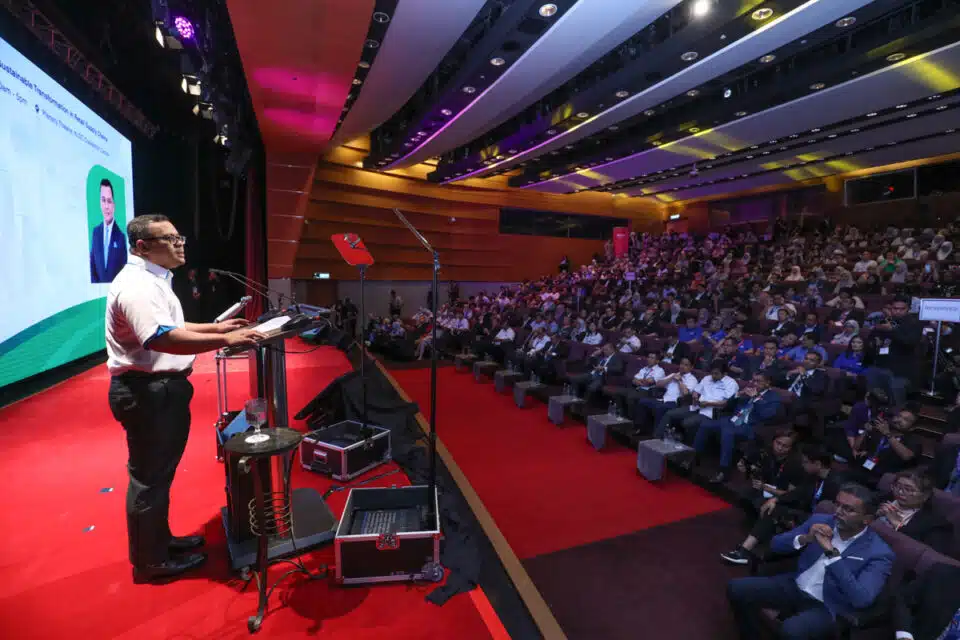KUALA LUMPUR, Oct 26 — The Selangor Smart City & Digital Economy Convention (SDEC) 2023 has provided valuable insights into Selangor’s collective efforts to achieve environmental, social and governance (ESG) commitments as well as accelerating sustainable transformation for many industry players.
The four-day convention, which was a part of the recent Selangor International Business Summit (SIBS) 2023, has successfully gathered industry leaders, startups, small and medium enterprises (SMEs) and players from public and private sectors to delve into the mechanisms of future smart city and digital economy frameworks.
Pos Malaysia advancing ESG principles
Pos Malaysia Bhd stands at the forefront of integrating ESG principles into its business strategies.
The national postal service company has collaborated with the Selangor Information Technology & Digital Economy Corporation (Sidec), organisers of the SDEC, to forge solutions that bring robust economic, environmental, and social benefits to its stakeholders and the nation.
“We want to play our part in the sustainability agenda by focusing on fleet optimisation, green buildings, waste management, sustainable packaging and digital learning,” Pos Malaysia head of sustainability Jarod Ho.
In March 2023, Pos Malaysia unveiled its sustainability roadmap. The company’s vision is clear: achieve net-zero carbon emissions by 2050.
As part of its interim targets, it has pledged to cut its Scope 1 and Scope 2 emissions by 30 per cent by 2025. Furthermore, the plan envisions that 28 per cent of its fleet will transition to electric by 2025, with a complete shift to electric vehicles by 2030.
With a fleet size exceeding 7,400 vehicles, Pos Malaysia has set its sights on integrating 143 electric vans and 200 electric bikes into its operations by the close of this year.
By year-end, Pos Malaysia anticipates deploying 143 electric vans across all 11 states of Peninsular Malaysia. As of now, 105 electric bikes have been in operation, serving states including Kuala Lumpur, Penang, Johor, Selangor, and Kedah.
“Transitioning to an electric fleet will not only be environmentally advantageous but also offer significant operational efficiencies,” he added, suggesting considerable cost savings without delving into specific figures.
Affin’s sustainable finance and financial inclusion
Affin Islamic Bank Bhd chief executive officer Datuk Paduka Syed Mashafuddin Syed Badarudin said the bank has started its sustainability journey by committing to firm ESG standards towards better risk management, long-term sustainability, reputation enhancement, talent attraction, and meeting stakeholder expectations.
“At Affin, ESG plays a pivotal role in our business transformation to drive positive changes and create a more sustainable and equitable future for our brand, our people, our stakeholders and our communities,” he said.
Syed Mashafuddin said the bank has targeted to achieve 10 per cent of loans or financing to be ESG-focused by 2025.
“In the first half of 2023, about 5.1 per cent of the financing was already ESG-centric, very much on the way to getting there and hopefully we will get there even before our 2025 target. Currently, our financing assets are about RM64.3 billion across corporate, enterprise and community banking,” he said.
Meanwhile, he said SDEC 2023 has provided a venue for the bank to offer financing products and solutions for small and medium enterprises (SMEs) to expand their businesses through evolving digital transformation, sustainable finance, and financial inclusion.
“Financial inclusion will contribute to the adoption of digital tools by SMEs for enhanced supply chain transparency and efficiency. It will also promote broader access to banking services in underserved communities, with a particular focus on mobile technologies and digital wallets.
“These developments will drive positive changes in the sustainable supply chain for both SMEs and the banking industry in the years to come,” he said.
— Bernama





